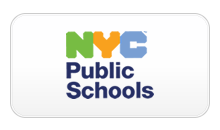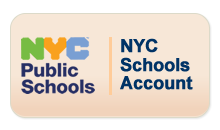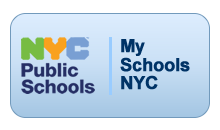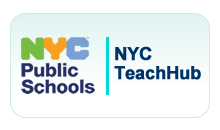CURRICULUM
Math Curriculum
Pearson enVisionmath 2.0 Math Program for Grades K-5
Empowering Every Teacher and Learner enVisionmath2.0 is a comprehensive mathematics curriculum for Grades K-5. It offers the flexibility of print, digital, or blended instruction. enVisionmath2.0 provides the focus, coherence, and rigor of Next Gen Learning Standards. Project-based learning, visual learning strategies, and extensive customization options empower every teacher and student. Conceptual Understanding. Deepen students' abilities to think mathematically. When students connect ideas, they deepen their understanding. enVisionmath2.0 is organized into clusters of connected topics and lessons. Students learn to see relationships, ask questions, and try different approaches. Problem-based learning drives students to engage in productive struggle.
English Language Arts
- HMH: Into Reading and Teachers College Units of Study for reading and writing are integrated to ensure that the needs of all students are met. The school’s writing curricula is robust and engages students in high levels of strategic thinking.
- Flight; Jumprope Readers and Fundations are utilized for phonics instruction and are taught in Kindergarten and 1st grade. 2nd grade phonics instruction is based on student need. Over 90% of students exceed phonics and phonemic awareness assessments according to Acadience, NYC’s Phonics assessment.
- iReady assessments are conducted three times a year at times indicated by the district office.
- Acadience assessments are conducted three times a year at times indicated by NYC DOE and the district office.
![]()
Science Curriculum
Pearson Elevate Science Program for Grades K-5
Elevate Science is a comprehensive K-5 science program that focuses on active, student-centered learning. The blended print and digital curriculum engages students in phenomena-based inquiry, three-dimensional learning, and hands-on investigations. Elevate Science builds students’ critical thinking, questioning, and collaboration skills. It fuels interest in STEM and creative problem solving while supporting literacy development for elementary-age learners. Raise student interest and approach science teaching with a new level of confidence! elevate thinking, learning, and teaching. Elevate Science encourages students to work like scientists and engineers. Phenomena-based inquiry develops general science ideas through problem solving and creative solutions. Elevate Science integrates Scientific and Engineering Practices, Crosscutting Concepts (CCC), and Disciplinary Core Ideas (DCIs). Three-dimensional learning turns young learners into powerful STEM problem solvers.
Social Emotional Curriculum
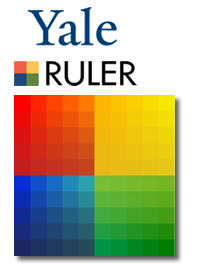 RULER is an evidence-based approach for integrating social and emotional learning into schools, developed at the Yale Center for Emotional Intelligence. RULER applies “hard science” to the teaching of what have historically been called “soft skills.” RULER teaches the skills of emotional intelligence — those associated with recognizing, understanding, labeling, expressing, and regulating emotion. Decades of research show that these skills are essential to effective teaching and learning, sound decision making, physical and mental health, and success in school and beyond.
RULER is an evidence-based approach for integrating social and emotional learning into schools, developed at the Yale Center for Emotional Intelligence. RULER applies “hard science” to the teaching of what have historically been called “soft skills.” RULER teaches the skills of emotional intelligence — those associated with recognizing, understanding, labeling, expressing, and regulating emotion. Decades of research show that these skills are essential to effective teaching and learning, sound decision making, physical and mental health, and success in school and beyond.
RULER creates schools that are true safe harbors for our children. It does this by developing emotional intelligence in students from preschool to high school and in all adults involved in their education: school administrators, teachers, and support staff. Parents also participate in training so that they can reinforce the emotional skills that students learn at school. The approach gives a unique depth and consistency to social and emotional learning that empowers school leaders and teachers to create a genuinely safe space for students to learn and grow.
Technology Curriculum
We are fortunate in our school to be at the point to be able to thread the use of technology into every subject area in every classroom. We are excited to move into the next phase of our school's technological development. The Next Gen Learning Standards call for the integration of technology throughout all of the core subjects. All of the above curriculums integrate technology into daily practice. Every teacher will be utilizing technology in the classroom on a daily basis. For example, every classroom has up-to-date Promethean Panels and Chromebook carts. In addition, many of the units of study for the Reading and Writing Workshop require teaching students how to conduct research via the Internet.
Students will be afforded the opportunity to utilize technology in their independent practice. For example, they will type up their published pieces in some of the writing units, they will conduct research on classroom laptops and iPads, and engage in project based learning on the computers. Furthermore, many of the assessments for the above curriculums will be conducted online in order to compile student data to inform further instruction. Taking the online assessments will also prepare students for the New York State Tests, which will ultimately be online tests. Thanks to our Parent Association and the generous donations from many parents, students of all ages have been able to integrate the use of iPads into their daily work.
Teachers will be scheduled to go to the Media Center once a week to engage in research, assessments, projects or educational intervention activities with their students. All teachers will have laptops available to sign into their classrooms for projects that will be mandated through the curriculums. Teachers will be provided ongoing support for the integration of technology into their daily practice. Furthermore, teachers will participate in professional development around the usage of technology in their lessons. Lastly, teachers will be studying research-based peer reviewed articles that focus on the integration of technology into the classroom each month. The first article is Making Best Practices Better; When Incorporating Technology, Don't Force Yourself to Change Everything You Do. Instead, Use it to Build on What You Already Do Well by Mike Dappolone.
![]()
